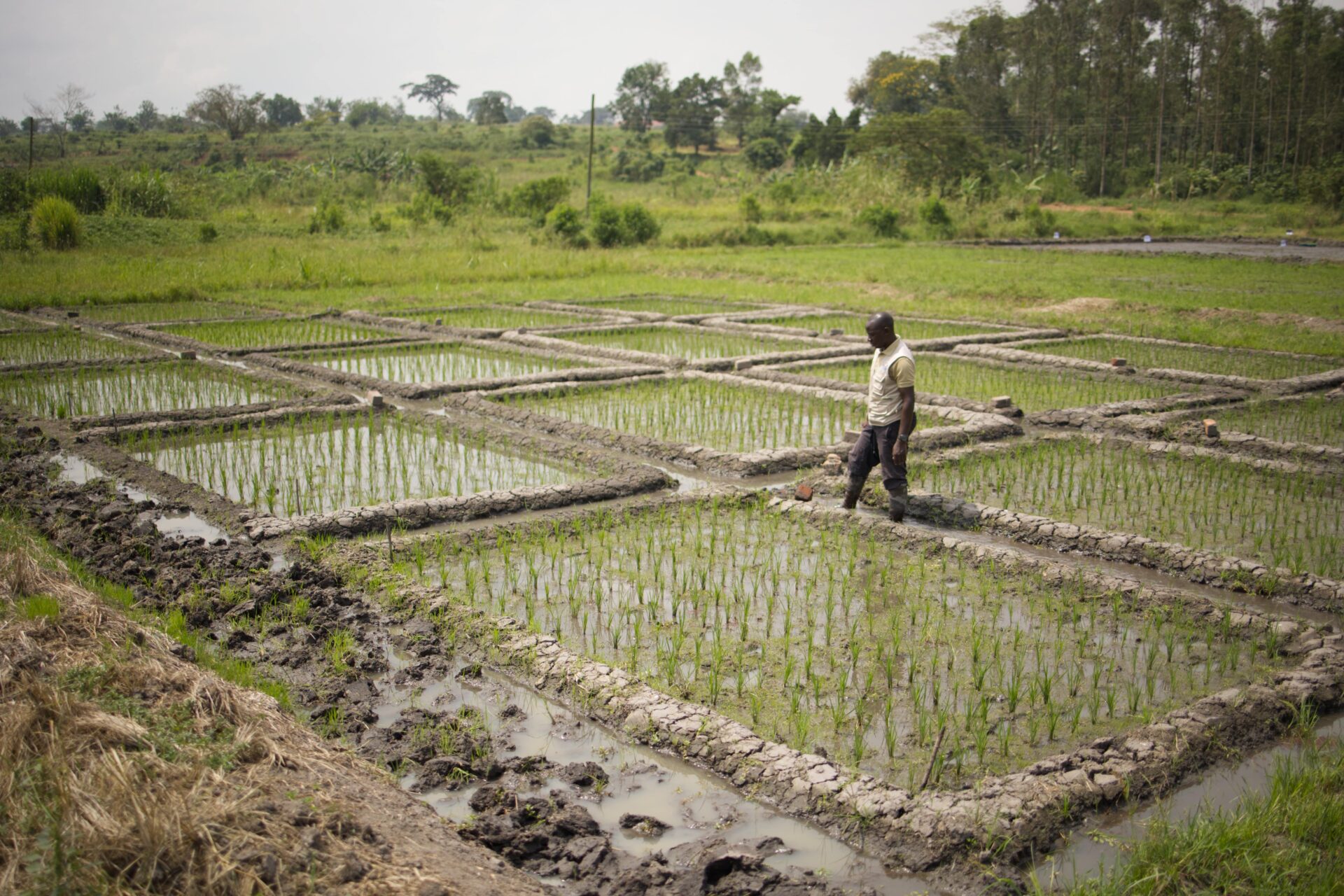
The low utilization of mechanization within CGIAR-NARES breeding programs in Africa is limiting their effectiveness and potential genetic gains. Manual management restricts the number of crosses and progeny assessments that can be performed, also affecting the uniformity and quality of nurseries and trials.
Facility Upgrade and Mechanization Improvmaement, a fifteen-million-dollar project part of Crops to End Hunger, a multi-funder broad initiative, aims to procure advanced equipment, upgrade infrastructures and establish sustainable service fees at key breeding research stations in Africa. The goal is to transform them into multi-crop hubs delivering high-quality data and supporting breeding programs across the continent.
Four improvement areas to unlock genetic gains
The project focuses on specific areas: mechanization, irrigation, seed processing and storage, and adequate shared services for breeding programs.
To promote mechanization, Facilities Upgrade... equips beneficiary stations with essential equipment such as planters, field preparation machinery, and harvesting tools, accompanied by training and ongoing assistance.
Inadequate and outdated irrigation systems, which have a detrimental impact on nurseries and trials, will be replaced with solar-powered systems wherever feasible. The goal is to double the irrigation capacities of the stations.
To safeguard germplasm and enhance integrity of breeding materials, the project will install state-of-the-art seed processing equipment, such as threshing and cleaning machines, at seven key stations. It will implement efficient drying procedures and provide suitable seed storage conditions, including cold storage facilities.
Addressing infrastructure and capacity limitations that impede standardization across CGIAR-NARES breeding programs is another crucial aspect of the project. Lack of standardization often results in discrepancies in data generation, with some programs adopting mechanized planting while others rely on manual labour.
The project aims to establish shared services facilitated by Breeding Resource Initiative (BRI) and provided by the research stations to multiple breeding programs.
In alignment with the Breeding Process Model (BPM) and the ongoing efforts of the Trialling & Nursery Process Management team (T&N), this project aims to assist breeding stations in developing their service catalogue, including services such as field preparation, planting, weeding, irrigation, seed processing, and other offerings, tailored to the capacity of each station. Fee structures will be established to ensure sustainability by accurately reflecting operational costs.
Delivering impact
In collaboration with various stakeholders including NARES and universities, and amongst the 300 breeding research stations existing in Africa, priority ones have been carefully assessed against specific criteria such as their research focus, crop diversity, and ongoing projects.
From this extensive evaluation, a selection of key research stations emerged as top priority locations. Together, they oversee more than 70 breeding pipelines for crops like maize, rice, cassava, potatoes, and cowpea, impacting significant population segments in Africa.
Nana Koffi, Rice Breeder for AfricaRice in Ivory Coast, testifies: “Many countries are not self-sufficient in rice production, so CGIAR Research Centers supported by donors, can have a great impact. We are working tirelessly to increase the rate of genetic gains.
One major game-changer enabled by Facilities Upgrade... has been the improvement of our data collection processes; we received barcode readers, printers, tablets, supplies... which revolutionized our data capture methods. In the past, we encountered challenges with labelling, misunderstandings, and incomplete records. Now, our data collection is fully automated, saving us time and resources.”
This project builds upon previous initiatives, including a 2020 digitalization project focused on phenotyping tools and a mechanization project aimed at introducing advanced field equipment. The Facilities Upgrade and Mechanization Improvement Project is the culmination of these efforts.
Alick Mulenga, Head of Breeding Operations at International Institue for Tropical Agriculture (IITA) in Ibadan, explains: “IITA has been a beneficiary of the three transformative projects, which have significantly enhanced our capabilities in breeding program management.
Through Facilities Upgrade... we will reduce breeding cycles time from one cycle per year to two or even three, and accelerate genetic gains. We're also expanding our operations to new locations to reach more communities.”
Supporting national partners
National partners receive support from the project and stand to gain from the advancements made at the breeding stations. Maxwell Darko, Deputy Director at CSIR-CRI Ghana, explains: “The project began with a thorough assessment of CSIR-CRI breeding facilities. A major milestone includes upgrading our seed processing area and expanding cold room facilities, alongside new construction projects to boost overall capacity.
Beyond infrastructure, our staff has undergone training in workspace maintenance, fostering a culture of continuous improvement. In just two years, collaborative efforts have yielded superior rice varieties, highlighting the incredible impact that collaboration of breeding stations with Centers, investment in facilities, and a commitment to continuous improvement can have on advancing our rice breeding goals.”
As the project further unfolds, more success stories are to come. Ultimately, the beneficiary stations will increase mechanization capacity, significantly reduce human error, expand irrigation areas, improve nursery and trial capacity, and enhance data quality and environmentally responsive operations. By addressing seed processing, drying, and storage gaps, the project will also provide the technical conditions to maintain seed viability.
The stations will become hubs for harmonized, and tailored shared services provided to breeding programs and national partners across the continent, thus driving genetic gains on a larger scale.
Resources
- Follow up on project development: consult the result dashboards
- On video: Webinar – Introducing Facilities Upgrade and Mechanization Improvements
- More about the project: summary, factsheet and more
- To the Crops to End Hunger programme page
----
Written by Julie Puech, Accelerated Breeding and Breeding Resources communications. “Crops to End Hunger (CtEH)” is a multi-funder initiative that aims to accelerate and modernize the development, delivery and wide-scale use of new crop varieties that are better adapted to climate change and that address gender equity, nutrition, food security and poverty. We extend our heartfelt appreciation to all the generous supporters of this initiative, with special recognition to GIZ. We also express our gratitude to the CGIAR research funders for their invaluable contributions to the CGIAR Trust Fund. Photo credit: Jjumba Martin, EiB/CGIAR. CGIAR breeding expert examines new rice crop varieties at network breeding facility in Uganda.